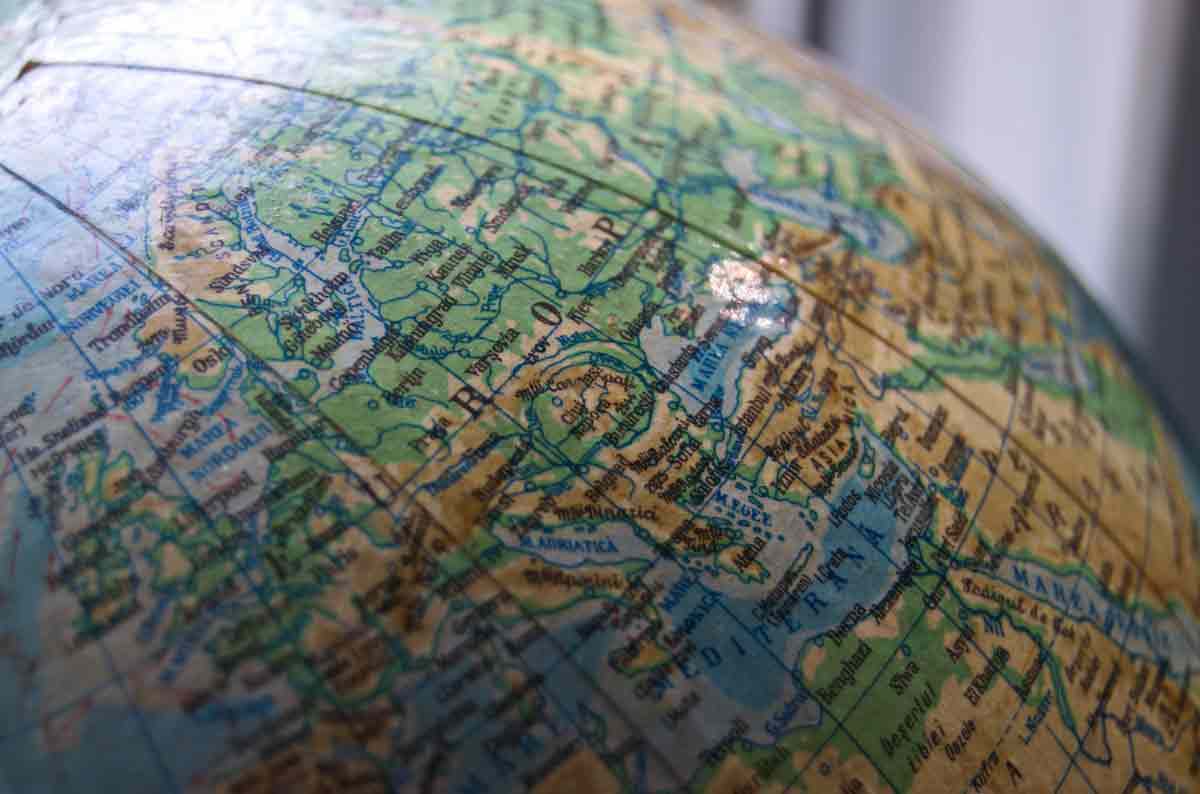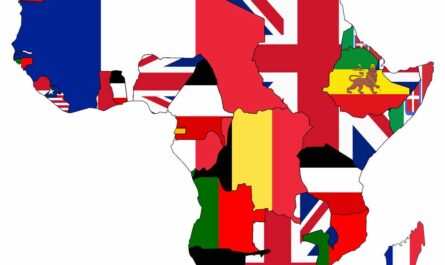What are the interesting facts about Gabon on the west coast of Central Africa, Gabon is a land of pristine rainforests, vibrant culture, and diverse wildlife. Bordered by Equatorial Guinea, Cameroon, and the Republic of the Congo, this equatorial nation boasts breathtaking landscapes that range from lush coastal plains to dense jungles and rolling savannas. Its capital, Libreville, is a bustling metropolis where modernity meets traditional African charm. Gabon’s rich cultural heritage is reflected in its music, dance, and art, with influences from Bantu tribes and French colonial history intertwining to create a unique identity. In this article, I will talk about some interesting facts about Gabon. Keep reading.
Interesting Facts About Gabon: History, Culture, Travel
Gabon is renowned for its commitment to conservation, with nearly a quarter of its landmass designated as national parks, protecting endangered species such as forest elephants, gorillas, and chimpanzees. As a leading producer of oil and manganese, Gabon’s economy has experienced significant growth, but the government also aims to diversify industries and promote sustainable development to ensure long-term prosperity for its people. Here are some interesting facts about Gabon:
1. Gabon: Where Nature Reigns Supreme
Gabon, a verdant jewel nestled on the west coast of Central Africa, is a land of breathtaking natural beauty and cultural richness. From the thundering cascades of Poubara Falls to the ancient traditions of the Fang people, Gabon’s landscapes and heritage are as diverse as they are captivating. Here, amidst the dense rainforests and winding rivers, nature reigns supreme, offering a sanctuary for both wildlife and indigenous communities alike. As guardians of the forest, the people of Gabon share a deep connection with their environment, living in harmony with the land and its inhabitants for generations. In Gabon, the rhythm of life beats to the pulse of the forest, where every tree, every animal, and every tradition tells a story of resilience, adaptation, and reverence for the natural world.
2. Poubara Falls: Nature’s Symphony
Amidst the verdant embrace of Gabon’s wilderness, Poubara Falls emerges as a crescendo of nature’s grand symphony, its cascading waters orchestrating a mesmerizing ballet of sound and motion. Here, where the Ivindo River converges with the rugged terrain, visitors are ensconced in a spectacle of awe-inspiring beauty, as the sheer force of water plunges into the abyss below with unrestrained vigor.
Poubara Falls transcends mere geological phenomenon; it embodies the primal essence of Gabon’s untamed landscapes, where nature’s creative prowess unfolds with breathtaking magnificence. Amidst the mist-laden air and thunderous roar, Poubara Falls invites contemplation and wonder, evoking a sense of humility in the face of nature’s immutable power and reminding all who behold it of the sacred harmony that pervades Gabon’s wilderness.
3. Fang Masks: Portals to the Spirit World
Deep within the cultural tapestry of Gabon, the Fang ethnic group emerges as custodians of a profound legacy, their intricate wooden masks serving as venerable conduits between the earthly realm and the ethereal domain of spirits. Crafted with meticulous artistry and steeped in spiritual symbolism, these enigmatic artifacts transcend mere aesthetic beauty, assuming the sacred mantle of portals to the spirit world.
Through intricate carvings and vibrant hues, Fang masks weave a narrative of ancestral wisdom and divine communion, beckoning the living to connect with their forebears and seek guidance from the divine. In the sacred rituals and ceremonies where these masks are invoked, the boundaries between past and present blur, and the ephemeral veil separating mortals from the supernatural are lifted, offering glimpses into the timeless mysteries that enshroud Gabon’s cultural heritage.
4. Bongo: Emblem of the Forest
Nestled amidst the towering verdant giants and the verdant undergrowth of Gabon’s untamed rainforests, the bongo, with its regal demeanor, gracefully traverses the terrain, its coat adorned with mesmerizing stripes that seamlessly merge with the dappling sunlight filtering through the canopy.
This magnificent creature, renowned as one of Gabon’s most emblematic denizens, not only captivates with its physical allure but also serves as a profound symbol of the forest’s resilience and the remarkable adaptability of Gabon’s diverse wildlife. Beyond its superficial splendor, the bongo assumes the crucial role of a keystone species, intricately woven into the fabric of the forest ecosystem, where its presence orchestrates a delicate equilibrium, ensuring the harmony and vitality of the biome persist.
5. Mbicicleta: Rites of Passage
In the cultural tapestry of Gabon, the Mbicicleta initiation ceremony stands as a venerable tradition among the Fang people, a pivotal juncture marking the transition of young boys from the innocence of childhood to the responsibilities of manhood. Laden with symbolism and imbued with ancestral wisdom, this sacred rite of passage entails arduous tests of physical endurance and spiritual fortitude, serving as a crucible wherein the youths are forged into resilient pillars of their community. Through intricate rituals and communal rites, the Mbicicleta ceremony not only imparts the virtues of valor and resilience but also fosters a deep sense of belonging and camaraderie among the initiates, thereby perpetuating the rich cultural heritage of the Fang people across generations.
6. Mitande: Stewards of the Land
Deep within the heart of Gabon’s lush rainforests dwell the Mitande, a venerable indigenous community revered as the custodians of the land, their ancient wisdom and profound connection with nature shaping their role as guardians of the forest. Living in symbiotic harmony with their verdant surroundings, the Mitande draw sustenance from the bosom of the forest, all while meticulously preserving its fragile equilibrium for posterity.
Their ethos of stewardship transcends mere sustenance; it embodies a sacred covenant with the land, wherein mutual respect and reciprocity form the bedrock of their existence. As stewards of the land, the Mitande epitomize the ethos of Gabon, where the intricate dance between humanity and nature unfolds in a symphony of coexistence and mutual reverence.
7. Gabon: Jewel of Central Africa
Nestled along the undulating coastline of west-central Africa, Gabon emerges as a veritable jewel in the continent’s crown, its pristine landscapes bedecked with the verdant splendor of lush rainforests, where exotic wildlife frolics amidst the emerald foliage. Beyond its natural allure, Gabon boasts a cultural mosaic as vibrant as its panoramic vistas, weaving together the rich tapestry of indigenous traditions with the dynamic pulse of modernity. From the verdant depths of Loango National Park to the bustling thoroughfares of Libreville, Gabon beckons adventurers and enthusiasts alike to explore its myriad treasures, each corner of the country resonating with a distinct charm and allure that renders it a destination unparalleled in Central Africa.
8. Okoumé: Sustainable Treasure
Within the verdant embrace of Gabon’s forests thrives the majestic okoumé tree, its noble stature emblematic of the country’s rich natural endowments. Revered for its exceptional hardwood, okoumé stands as a testament to Gabon’s commitment to sustainable forestry practices, its timber harvested with meticulous care and foresight to ensure the perpetuation of the forest ecosystem. As a cornerstone of Gabon’s economy, okoumé embodies not only the country’s economic prosperity but also its steadfast dedication to environmental conservation, symbolizing a harmonious coexistence between human development and ecological preservation.
9. Libreville: Where Tradition Meets Modernity
At the nexus of tradition and modernity lies Libreville, the bustling capital city of Gabon, where the echoes of French colonial influence mingle with the vibrant rhythms of contemporary African life. Along the elegant boulevards adorned with colonial-era architecture, the past converges with the present, offering a captivating tableau of cultural synthesis and diversity.
In the bustling markets teeming with local crafts and flavors, visitors are enveloped in the sensory tapestry of Gabonese heritage, while modern amenities and cosmopolitan allure lend the city an unmistakable air of dynamism and sophistication. Amidst the bustling throngs and bustling thoroughfares, Libreville emerges as a vibrant microcosm of Gabonese identity, where tradition and modernity entwine in a seamless fusion, inviting exploration and discovery at every turn.
10. Last Eden of Central Africa
Gabon’s sprawling rainforests, aptly dubbed the “Last Eden of Central Africa,” stand as a testament to the nation’s unwavering dedication to conservation and the safeguarding of environmental sanctity. Shielded from the relentless march of human progress, these untamed expanses remain virtually untouched, serving as bastions of primal beauty and ecological integrity. Within their verdant embrace thrives an astonishing array of life forms, from elusive species of fauna to botanical wonders found nowhere else on the globe. As the dwindling remnants of wilderness in a rapidly developing world, Gabon’s rainforests emerge as a beacon of hope, rallying cries for the preservation of Earth’s fragile ecosystems and the imperative of sustainable coexistence.
11. Loango National Park: Haven for Gorillas
Nestled within the bosom of Gabon’s wilderness lies the hallowed expanse of Loango National Park, an oasis of biodiversity and a sanctuary for the imperiled western lowland gorillas. Here, amidst the labyrinthine maze of verdant foliage and meandering waterways, visitors are afforded the rare privilege of encountering these magnificent creatures in their native habitat, a stirring spectacle that evokes awe and reverence.
As stewards of this natural haven, Gabon’s national parks assume a sacred duty, serving as bulwarks against the encroachment of civilization and bastions of hope for the survival of endangered species. In the heart of Loango, where the primal rhythms of nature still echo, lies a poignant reminder of humanity’s profound responsibility to protect and preserve the irreplaceable treasures of our planet.
12. French Colonial Legacy
Gabon’s historical narrative intertwines with the legacy of French colonialism, a chapter etched in its official language, French, and echoed in the architectural motifs that adorn its urban landscapes. The imprint of French influence resonates in the elegant boulevards and neoclassical facades of Libreville, where vestiges of colonial grandeur coexist with the rhythms of modern Gabonese life. This linguistic and architectural inheritance serves as a tangible reminder of Gabon’s complex colonial past and the enduring legacy of its French colonial overlords.
13. Independence in 1960
In the annals of Gabonese history, the year 1960 marks a pivotal juncture as the nation emerged from the shadows of colonial subjugation to claim its sovereignty and chart its course as an independent nation-state. With the lowering of the Tricolour and the hoisting of the Gabonese flag, Gabon embarked on a journey of self-determination, heralding a new era of autonomy and national identity. Yet, independence was not merely a political milestone; it represented the collective aspirations and struggles of the Gabonese people to forge their destiny and shape the contours of their future.
14. Rich Mineral Resources
Embedded within Gabon’s verdant terrain lies a hidden wealth of mineral resources, a testament to the country’s geological endowments and economic potential. From vast reserves of manganese to coveted deposits of iron ore and beyond, Gabon’s mineral wealth serves as a cornerstone of its economy, underpinning industrial development and driving economic growth. The exploitation of these riches not only fuels Gabon’s economic engine but also presents opportunities for infrastructural development and technological advancement, propelling the nation towards a prosperous future.
15. Importance of Petroleum
Amidst Gabon’s mineral bounty, petroleum reigns supreme as a linchpin of the nation’s economic vitality and fiscal stability. With lucrative oil reserves dotting its offshore waters, Gabon harnesses the power of petroleum as a primary source of revenue, fueling government coffers and underwriting public expenditure. However, cognizant of the volatility inherent in petroleum markets and the imperative of sustainable development, Gabon’s leadership endeavors to diversify the economy, mitigating reliance on oil revenues and fostering resilience in the face of global economic fluctuations. Thus, while petroleum remains a vital pillar of Gabon’s economy, the nation’s vision for the future is one of diversified growth and sustainable prosperity.




